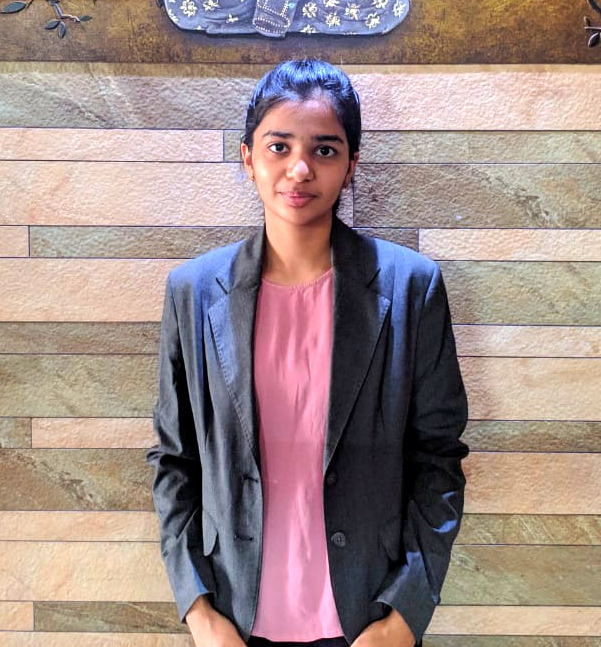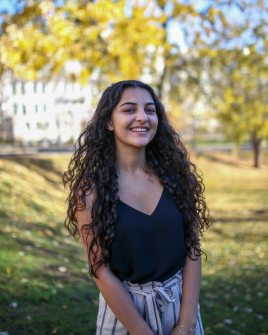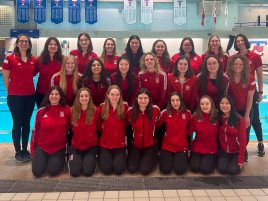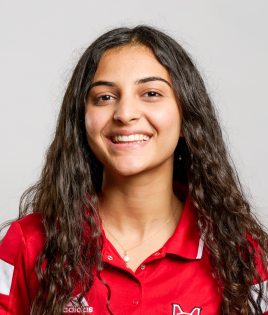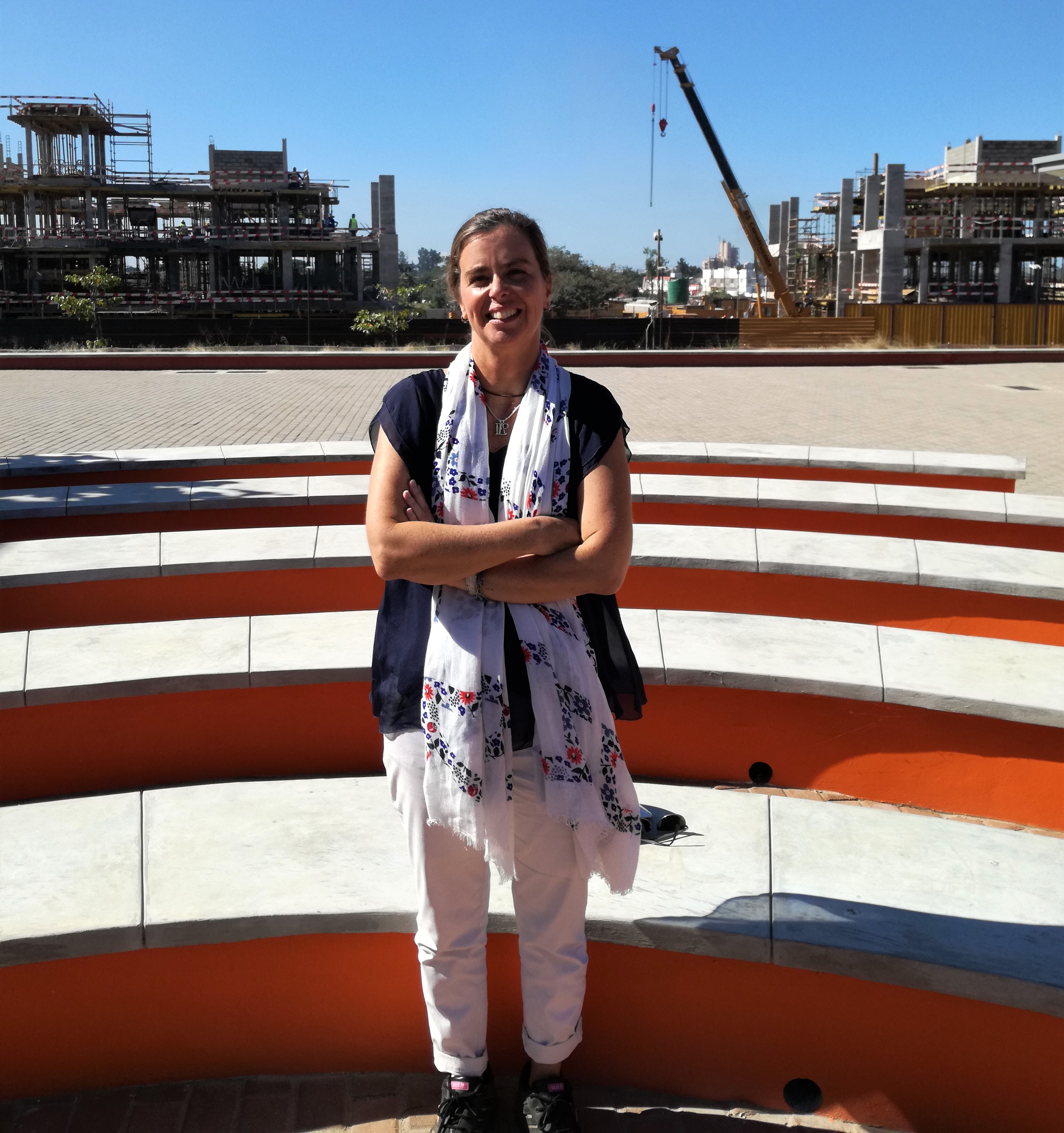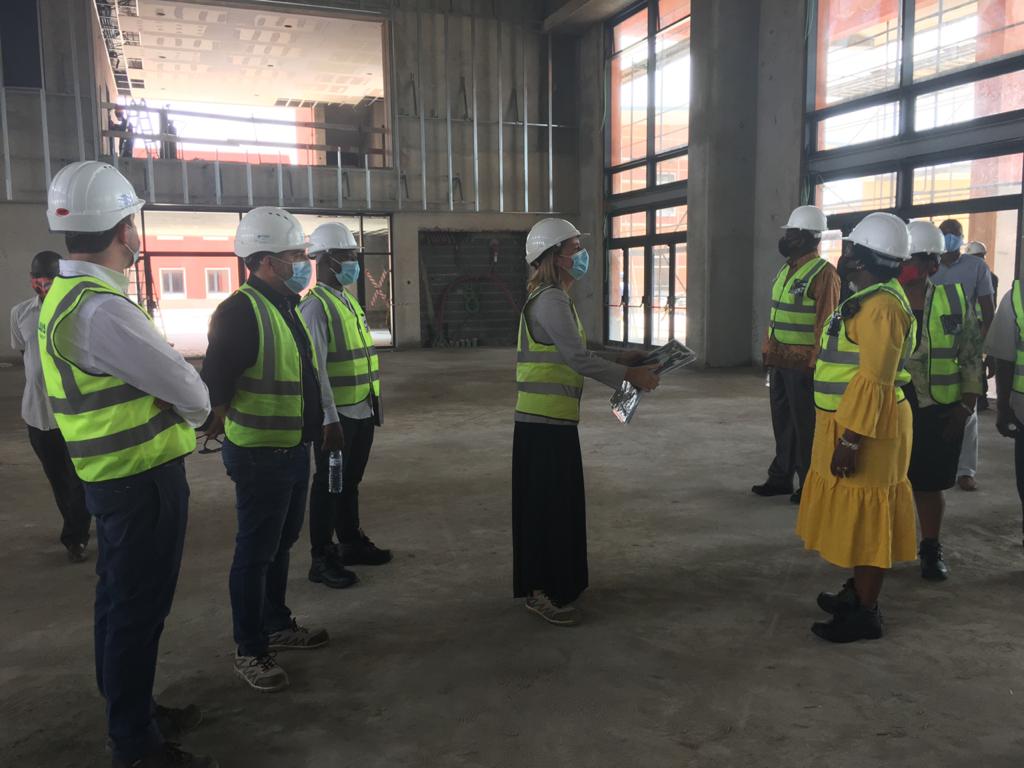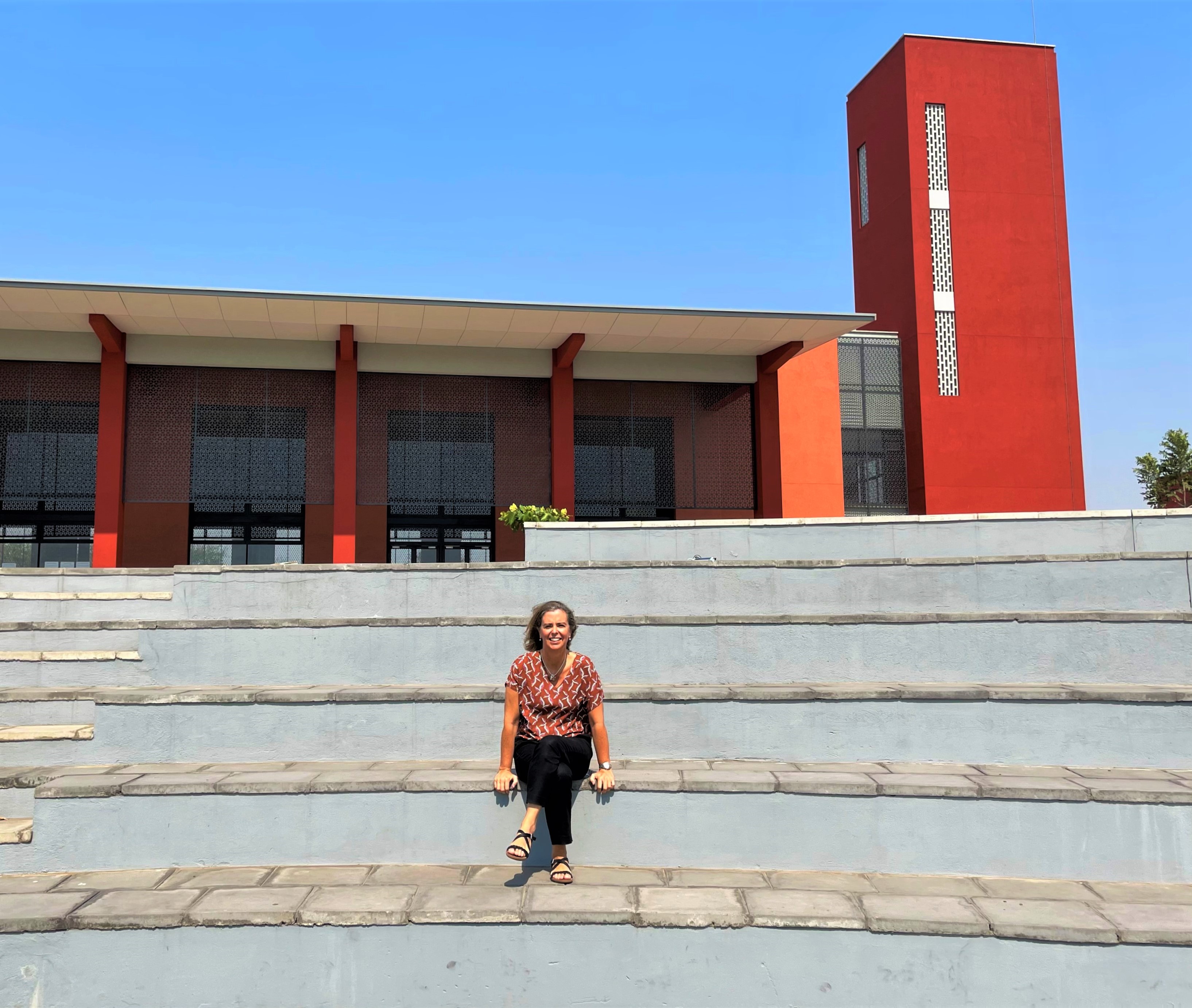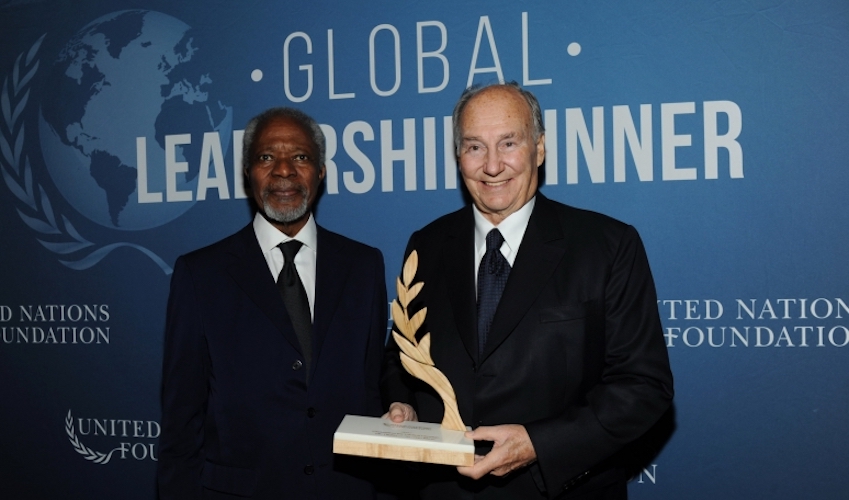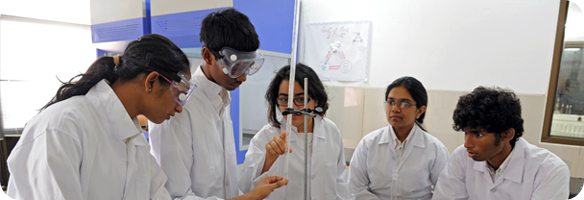
Academic Programme
The Aga Khan Academy Hyderabad offers an education of an internationally recognised standard of excellence to prepare students to become intellectually curious, globally-minded citizens of the world.
The Academy programme develops students who are committed to positive change and are able to understand and analyse complex issues of local, national and global significance.
Our curriculum is built on the framework of the International Baccalaureate (IB). The IB is a thorough, multidisciplinary curriculum that fosters:
- intellectual curiosity
- creativity
- leadership development
- social consciousness
- a pluralistic sensibility.
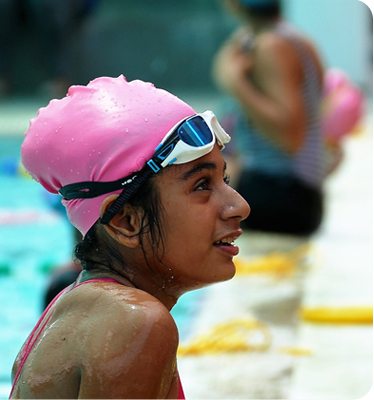 The IB is also known for preparing students for admission to the best universities in their own countries and abroad.
The IB is also known for preparing students for admission to the best universities in their own countries and abroad.
Our focus is on developing students' critical thinking skills and the ability to analyse issues. We also emphasise multicultural understanding and awareness. One of the ways in which we help our students develop skills for ethical leadership is through the Aga Khan Curricular Strands. These are cross-disciplinary areas of study that have been developed for the network of Aga Khan Academies.
Overall educational programme
Our curriculum is complemented by enrichment, athletic and community service initiatives. The overall educational programme is designed to educate well-rounded, civic-minded individuals. It enhances students’ academic excellence, leadership skills, sense of civic responsibility, understanding of global issues, and analytical and study skills. The programme also reinforces an understanding of local languages, history, cultures and environment.
When they graduate from the Academy, students are expected to be computer literate and have a thorough understanding of the diverse academic disciplines covered in the IB curriculum. They should have mastered at least two languages, including English. Through the planned international exchange programme, our students will be able to enhance their foreign language learning and appreciation of other cultures.
Our graduates are thus well prepared for the rigours of higher education and to pursue opportunities in an increasingly interdependent world.
For further information on the IB programmes offered at the Aga Khan Academy Hyderabad, please visit the following pages:
- Primary Years Programme (grades 1–5)
- Middle Years Programme (grades 6–10)
- Diploma Programme (grades 11–12).
Muskaan Bhaidani (Class of 2020): Journey to university and the Academy's impact
Muskaan Bhaidani is an alumna of the Aga Khan Academy Mombasa who was in the Class of 2020. Graduating with an impressive International Baccalaureate (IB) Diploma Programme (DP) score of 44 out of 45, Muskaan is now attending McGill University in Montreal, Canada.
Read on to see what Muskaan says about university life and how her time at the Academy contributed to who she is today.
Can you please tell us about yourself, Muskaan?
I did the IB DP from 2018 to 2020 and took economics, geography and English at higher levels and mathematics, biology and French at standard levels. At the time, I took these subjects purely out of interest, and I really enjoyed what I did. However, I’ve always wanted to work in the development sector, so I think geography and economics played into that really well. I also did my extended essay in French since I wanted to improve in it, but now that I am studying in Quebec, it’s been really helpful.
How did you manage to narrow down your interests to zone in on a career path finally?
That’s such a big question to answer! Honestly, I still don’t think I know for sure what I want to do. I think that the path that I’ve chosen to take is just to keep going ahead with doing what I like, which right now is international development with a focus on food insecurity. In fact, I did my personal project at the Academy around food insecurity, and passion has definitely stuck with me over the years. I’ve also taken an interest in social entrepreneurship, which I could potentially see myself pursuing in the future. Right now, however, I’ll be going with the flow and figuring things out one step at a time.
How did you find the university application process? What did you find challenging, and how did you choose between all the universities you got into?
The university process is definitely difficult and scary because of the uncertainty it entails. I applied to the US, UK and Canada. I personally felt that applying to Canada was a much easier process since you don’t have to send in any standardised test scores or personal statements. Their supplementary requirements, if any, are very minimal compared to the UK and the US. And since a lot of Academies students end up coming here, it’s nice to know that you have an established system to fall back on if you need to. I think the main reason I got accepted to the universities I applied to was because of my academic performance and extracurricular activities that I took part in at the Academy which have carried me to university. As for how I decided on McGill in the end, it was mainly a lot of research and making pros and cons lists. I tried to compare universities in terms of the course I’ll be studying, what I want to do in the future, opportunities I would get while still studying, acceptance rate, etc., and McGill stood out to me in all these aspects. Montreal is a great city for students, and I am glad it worked out!
What have you done since you joined university that you are most passionate about?
I have been a part of multiple clubs. One, in particular, is IYAD (IRSAM Youth Advisory Delegation), a youth advisory delegation to the United Nations, where we write policies and present them at the UN Headquarters in New York every year, and it’s been something I’m really passionate about as I used to participate a lot in Model UN. I am now an executive in the club! I also took part in Enactus, a social entrepreneurship club where we mainly try to help local businesses thrive, and it has been a rewarding experience. Lastly, I am also a member of the varsity artistic swimming team – I used to do a lot of swimming at the Academy till COVID-19 happened, and this was the perfect way to get back into it in an artistic form I had never done before!
How has university life been? And how have you been preparing yourself for this upcoming exchange programme you are participating in?
Life at McGill differs a lot from person to person, but it mainly consists of class in the morning, followed by any extracurriculars you may have taken up. I also have a student job as a student advisor, so I have that in my routine as well, besides swimming and clubs. Going into your third or fourth year in university also means you have to cook for yourself and run your own household of sorts – this actually makes up a substantial portion of a student's schedule. I don't find it to be incredibly different from the high school experience, it’s just more diverse in terms of what you study within your specified subject. I will be going on an exchange to UCL in London next semester. Of course, I’m nervous, but I’m looking forward to immersing myself in a new culture since I’ll only be there for three months. I do consider Montreal home now that I’ve lived here for three years, and going away from home is daunting. I hope it feels as welcoming as Montreal. But from what I understand, London is very diverse, with lots of things to do, and I know I need to put myself out there and be open-minded.
How has the Academy helped shape you and prepare you for university?
The Academy has taught me how to put myself out there confidently by never limiting me and assuring me that I can do anything I set my heart to. It has a way of boosting your self-esteem and shows you your strengths and uniqueness. I engaged in a lot of communal activities and opportunities at the Academy, so I don’t find it difficult to do the same at university, whether that’s applying for a challenging course, position or an exchange programme.
How important do you think it is for students to reach out to Academies alumni?
I think it’s very important. We all leave school and make great friends at university, but the friends you make at the Academy are just different because it is so easy to spend time with them for hours and feel surrounded by a sense of community and warmth. In fact, my roommate now at McGill is a good friend of mine from the Academy. It is easier to reach out on an established Academies-centric network if and when you need help, especially because all of us who have been through the application process are always willing to help whenever we can. Having an alumni community only makes it more accessible and convenient to reach out.
Do you have any advice for students going through the university application process right now?
Work on your predicted grades, those are very important. Build good relationships with your teachers and they can direct you on how to constantly get better at your subjects. And, this might sound cliché, but be authentic in your applications. You never know what a university wants in its essays, and in a pool of incredibly smart and talented applicants, the only way to truly stand out is to be your unique self. So, focus on what you are interested in as opposed to what you think others might find interesting.
Interview conducted by DP2 student Samhitha Paruchuri from the Aga Khan Academy Hyderabad.
Laura Brandão: Building the AKA Maputo campus from the ground up
Laura, who is originally from Portugal and a civil engineer by trade, joined the AKA Maputo in July 2017. She began her involvement with the Academy’s construction project in 2012 as the general manager of an outsourced project management company.
“It’s interesting because, as the general manager of my former company, I was involved since the inception of the Academy as I was appointed to the project management of the AKA Maputo’s first phase, which is the phase that represents the opening of the Academy’s Early Years Centre,” Laura said. “In this way, I have been involved since the very beginning of the Academy’s construction, and this has equipped me with both an internal and external perspective of the Academy.”
Laura attained her undergraduate degree in civil engineering from Instituto Superior Técnico in Lisbon, Portugal. She then moved to Leuven, Belgium in pursuit of a Master’s qualification in the conservation of historic towns and buildings at the Katholieke Universiteit.
Upon the completion of her master’s degree, Laura returned to Portugal where she jump-started her career in project management. “I started my career in an area that slightly differed from my master’s qualification,” she said. “This is because, at the time, Portugal was not very focused on the restoration of historical buildings and monuments. So, I started my career in project management.”
The company Laura worked for at the time later invited her to join their newly-launched branch in Mozambique. She arrived in Mozambique in September 2010 and worked for this company until 2017 as a general project manager, where she did a lot of project management work in Mozambique.
In 2017, the company decided to cease their activity in Mozambique but Laura wanted to remain in the country. Every cloud has a silver lining, as it was at this time that Laura received an invitation to join the AKA Maputo as the Academy’s senior project manager and client representative.
"A reputable team of international and local architects and engineers have designed the Academy to be in line with Aga Khan Development Network’s pursuit of excellence in both the physical facilities, as well as the quality of education intended to be imparted at the finished facility,” Laura said. “I am glad I was selected to execute this team's vision for the AKA Maputo."
Praising the overall mission and vision of the Aga Khan Academies, Laura places great emphasis on the important role that the AKA Maputo plays in the betterment of the Mozambican educational sector and, ultimately, in the Mozambican society.
“This is an exceptional project because of its concept, dimension, challenge to have been built in Mozambique and, on top of all, the purpose that it develops,” Laura said. “The mission of educating and developing students to become highly qualified and socially responsible professionals and leaders, which Mozambique needs to support its socio-economic development, is what makes it an absolute honour to have been chosen to lead this project. It is an emblematic project.”
With the AKA Maputo’s significantly diverse student and staff population, Laura has found engaging with multinational colleagues to be interesting and positively challenging. She gained a thorough understanding of how the Academy’s leadership team perceives the Academy and has applied this to the construction of the campus.
“Sometimes it can be challenging because each individual has their own ideas, and sometimes it can be difficult to incorporate all of these ideas in the project development,” Laura said. “But, overall, I think my colleagues are satisfied with my work as we always try to include all of their ideas within our budget. Ultimately, the buildings are for them, for the teachers, staff members and, on top of all, for the students.”
However, the biggest challenge Laura faced was the Academy’s construction since international lockdowns eased due to COVID-19. Reflecting back, Laura said she and her team had to ensure the pandemic did not severely impact the development of the AKA Maputo. This required strong team collaboration, dedication and mutual support.
“Post-COVID-19 on a global level, particularly in terms of material costs, import costs and the lack of transportation, was quite difficult to digest and it was a fight,” Laura said. “Nevertheless, the fact that we did not have a single positive case during the pandemic is very rewarding. And although I am leading the project, it has been a great team effort.
“I have received a lot of support from my director in Geneva and I think, all together, we are very successful. And when I say we are a team, I don’t only mean the construction team – design team, project management team, contractors and project colleagues – but I mean the Academy in its entirety as led by the Head of Academy, who closely collaborated with me to bridge the gap between construction and school.”
“The Academy was planned in phases to allow for the school to grow during construction, and the manner in which the academic team always understood the "conflicts" between construction and the normal school life were fantastic. So from the leadership team, right down to each and every colleague, we are all a team and should be very happy at the results that we have achieved amidst these uncertain times.”
Reflecting on the various beautiful spaces and facilities at the AKA Maputo, Laura says it’s rather difficult to choose only one building as her favourite. But, aside from the Court of Palms – an area on campus that has 24 Royal palms standing tall and proud – one of her favourite spaces at the Academy is the Moyo, which means heart in Swahili. The Moyo is the Academy’s amphitheatre where whole school assemblies and other fun events are hosted.
“For me, each building in the Academy has its own story and they are all very dear to me,” she said. “But I think that the Moyo is, in fact, the heart of the Academy, and the contrast of the Moyo against the rest of the buildings at the Academy is the most emblematic area in my eyes.”Being directly involved in the development of the AKA Maputo from the start, Laura has observed how the rapid growth of the Academy has positively impacted the students and staff, alike. “It has been very gratifying to witness the joy of the students and all of the school staff,” Laura said. “They are amazed at the level of facilities that are being provided at the Academy. I have no doubt in mind that the Aga Khan Academy Maputo is the school with the highest quality infrastructures in the country.”
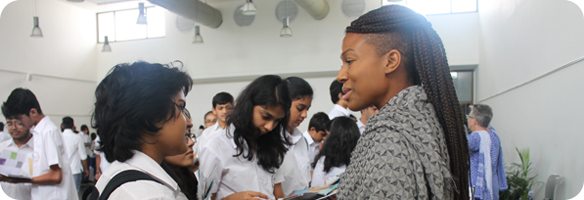
University Counselling
The Aga Khan Academy Hyderabad’s university counselling programme offers students a vast array of resources designed to help them find good matches between themselves and universities or colleges. These resources include a dynamic and well-resourced university counsellor, a wealth of printed, video and online tools, and a series of informational workshops and seminars on topics central to the university discovery process. Each year, we host university fairs at the Academy which are attended by universities from around the world, giving our students exposure to a wealth of options from which to choose.
Our counsellor engages students in individual conferences that are designed to help students reach a greater awareness of who they are. Armed with the well-articulated sense of self, students are prepared to find universities or colleges that are the best fit. Ours is a student-centred approach, and we believe that the likelihood of satisfaction with their choices is enhanced when students are empowered to 'own' the process. Also key to success is good communication among all parties: students, parents and university counsellors. While outcomes are important, it is the process of self-discovery and university-discovery on which our programme focuses.
For more information, please write to our University Counsellor, Pragati Pandey, reachable at pragati.pandey@agakhanacademies.org.
Click here to view the 2021-2022 school profile.
Click here to download a copy of the 2021 University Counselling Handbook.
Annual Academy Review Meeting - Hyderabad, 26-27 April
Welcome to the Directors of the Aga Khan Academies global network to Hyderabad this week for our next ARM.

About the Academy
The Aga Khan Academy Maputo is the third in a network of Aga Khan Academies established by His Highness the Aga Khan. It follows the highly successful model established by the first two Academies, which opened in Mombasa, Kenya in 2003 and Hyderabad, India in 2011.
The Aga Khan Academy Maputo has been accredited as an International Baccalaureate (IB) World School for the Primary Years Programme, Middle Years Programme and Diploma Programme.
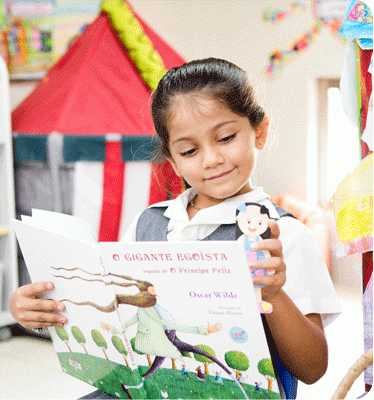 The Academy features state-of-the-art facilities, a multicultural student body, and an experienced team of educators and staff. We provide students with education of the highest standard in order to prepare them for lives characterised by leadership and service.
The Academy features state-of-the-art facilities, a multicultural student body, and an experienced team of educators and staff. We provide students with education of the highest standard in order to prepare them for lives characterised by leadership and service.
Admission to the Academy is means-blind and is based on merit. We consider all eligible students regardless of socio-economic status.
A culture of excellence
As with all the Aga Khan Academies, we are committed to excellence in all aspects of education. This commitment includes the academic curriculum as well as the campus where students live and learn.
Our campus is architect designed and is being purpose built. With state-of-the-art classrooms and resource areas, and extensive sports facilities, our campus will provide an inspiring environment for both students and staff.
At the Academy, we strive to create a balance between academic demands, sports, cultural activities and community life. We challenge our students to be intellectually inquisitive and socially conscious. We also encourage them to respect and appreciate other people’s cultures, social structures, values and beliefs.
A rigorous academic programme
The Aga Khan Academies' academic programme has been developed through the implementation of the widely-recognised International Baccalaureate. The programme is designed to challenge students of all backgrounds.
Our aims for our students include:
- promoting academic excellence
- enhancing analytical and study skills
- building leadership skills
- fostering an ethical outlook and sense of civic responsibility
- developing an understanding of global issues
- encouraging creativity.
Experienced local and international teachers lead our programmes. Faculty members are up-to-date with the best educational practices. They are committed both to their students’ learning and to their own continuing professional development.
